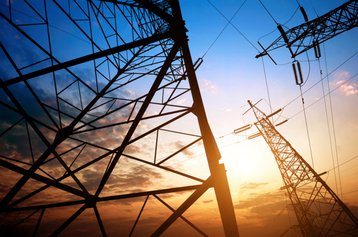Octopus Energy is planning to put up its own pylons to help expand the UK's electricity network.
The provider has been in talks with the regulator Ofgem over plans to end the National Grid's monopoly in the electricity network in England and Wales, according to a report in The Telegraph. The move could help operators who want grid connections in areas where utilities struggle to provide connections.
While overall capacity is tight on the network, the distribution network is a much bigger challenge. In 2022, it was reported that large home-building projects in West London were stymied because data centers in the boroughs of Hillingdon, Ealing, and Hounslow had booked all available grid connections years ahead.
In many instances, new projects are blocked because residents object to new infrastructure such as pylons.
Octopus believes it may be able to build more quickly and flexibly than the National Grid, its chief executive Greg Jackson told The Telegraph: "If we could find ways to build power infrastructure that are faster and cheaper, who wouldn’t want it?”
He said that Octopus could find ways to build infrastructure with less community resistance: “There are so many different routes you could use, so many different construction technologies and different ways of solving it. It is ripe for innovation.”
Grids around the world need massive new connections because the sources of energy are shifting from coal mines and fossil fuel locations to offshore wind and solar farms. At the same time, the demand to decarbonize transport and heating means new capacity is needed.
As an example, the National Grid of England and Wales needs to build five times more overhead or underground lines in the next 12 years than it has in the last 30 years, and around four times more subsea high voltage cables than are currently, according to the UK Energy Research Centre.
Ofgem has been instructed to assess the possibilities for competition in energy transmission in the UK, after the passing of the 2023 Energy Act.
Octopus Energy is an energy company specializing in renewables, which has become one of the UK's largest consumer utilities since it was founded in 2015. Its plans to get into distribution could be helped by its 2021 purchase of Eclipse Power Networks, a small-scale local distribution network builder.
Octopus also made a £200 million investment this month, in Deep Green, a distributed computing provider that places small Edge computing modules at sites with a need for heat, such as swimming pools.




